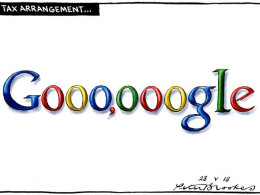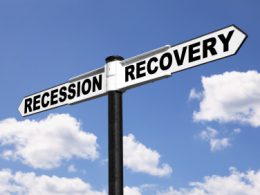As a result, the banking crisis is having an immediate and very debilitating affect on the government’s ability to borrow and deal with its own financial crisis. The potential for national or state insolvency is clearly increasing and the speed of the growth in the government’s revenue deficit is justifiably worrying many. Public sector trade union leader, Dan Murphy of the PSEU (Public Service Executive Union), mentioned the potential for IMF (International Monetary Fund) intervention, probably mainly to try and frighten his members into agreeing to some government cuts in wages. However, the idea of an intervention by the IMF is not so fanciful, given the depth and trends of the government’s financial crisis, particularly if it is not able to get the cash it needs from other sources.
Even before the events of the last days, Allied Irish Bank (AIB) and Bank of Ireland (B of I) were facing extremely serious problems. They were finding it very difficult to raise funds from private institutions, to go alongside the €4 to €6 billion the government has said it would invest in both. The two main banks denied that they faced any significant difficulty for months, but clearly their collapsing share prices and the fact that they cannot borrow means investors simply do not believe them.
The whole Anglo Irish affair, the corruption at the top, and the fact that the Financial Regulator has also resigned will undoubtedly make international investors extremely sceptical of anything the heads of AIB or B of I or, for that matter, what the Irish government may say.Both these banks are essential financial cogs in the Irish economic wheel and, likewise, both are badly exposed to the crisis in the property sector. They also followed Anglo into more reckless loaning policy towards sectors like commercial property after 2005, when the illusion was being peddled that the boom in commercial property would continue, even after the housing bubble burst.
As the price of property continues to decline and, in particular, with unemployment growing at a record rate, a very significant crisis of bad debt is about to hit both banks. The estimates of some – that the price of Irish property will decline by 80% from its highs of late 2006 and early 2007 – must give these bankers very dark nightmares.Given how the crisis at Anglo has spun out, the recapitalisation of these banks is now absolutely urgent. From its point of view, the government was caught out with Anglo. Their recapitalisation programme was too little, too late. But it is entirely possible that they will continue to move too slowly and the same could happen with AIB or B of I.
The debate in the Dail [parliament] on the Anglo nationalisation showed the government remains behind the dynamic of events. They continued to stress that they did not see any need to nationalise the main banks. However, they are likely to try to move quickly to recapitalise and increase the state investment in both AIB and B of I. With the diminishing of the bankers’ authority, the government, in many ways, has now got effective control of these banks. If, because the banks cannot get private investment, the government is forced to buy billions worth of AIB and B of I’s shares, then they will end up owning a majority of the banks shares.
Despite the fact that the government was in the process of purchasing 75% of Anglo, the extent of the economic crisis and its very poor loan-to-capital ratio, meant such a substantial stake still was not enough and it had to be nationalised. While it is impossible to say exactly what will happen, the nationalisation of AIB and B of I and, in effect, the whole Irish banking system, is now a very serious prospect.
The six main Irish banks pushed neo-liberal profiteering past the limits over the last fifteen years and, in doing so, completely undermined the financial system that they base themselves on. Collectively, they have loans in the region of €450 billion. This crisis, where the over-leveraging of the Irish banks is being exposed, is taking place in the context of a renewed crisis hitting the whole international financial system and that, in turn, will make the situation in Ireland much worse.
The bank bailouts in the US are not working and more money is being pumped into Bank of America, because the debts at Merrill Lynch and Citigroup, which it took over, turned out to be much worse than anticipated. British domestic banks are considered by “experts” to now be insolvent and are on the verge of collapse. It has been announced there will be a new £200 billion investment into the British banks. The same scenario is repeated in country after country. All this instability in the international financial markets will make the particular crisis of Irish banking even more acute.








 By Stephen Boyd, Editor, the Socialist
By Stephen Boyd, Editor, the Socialist